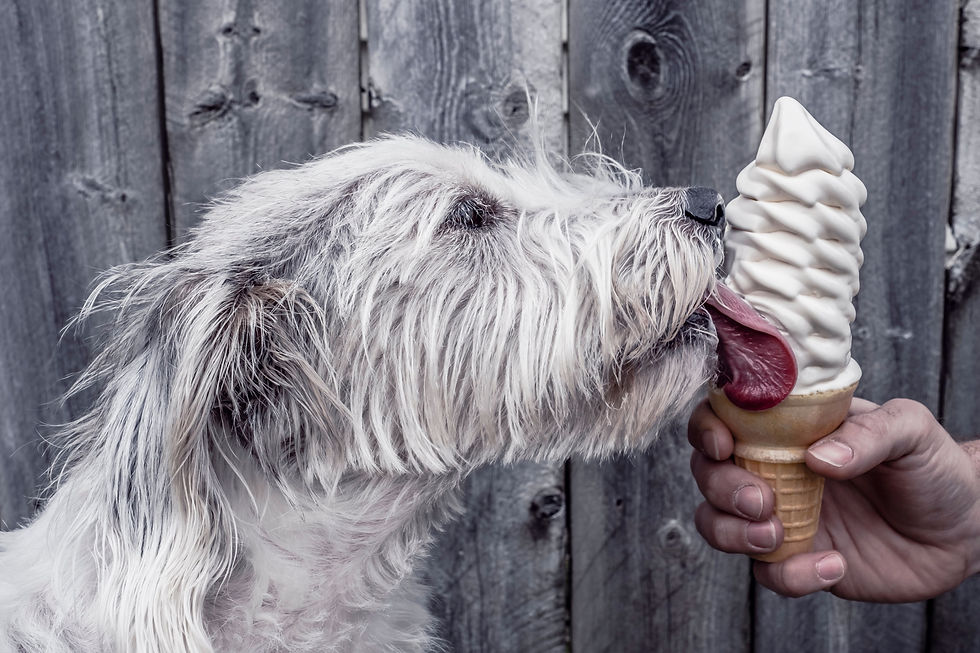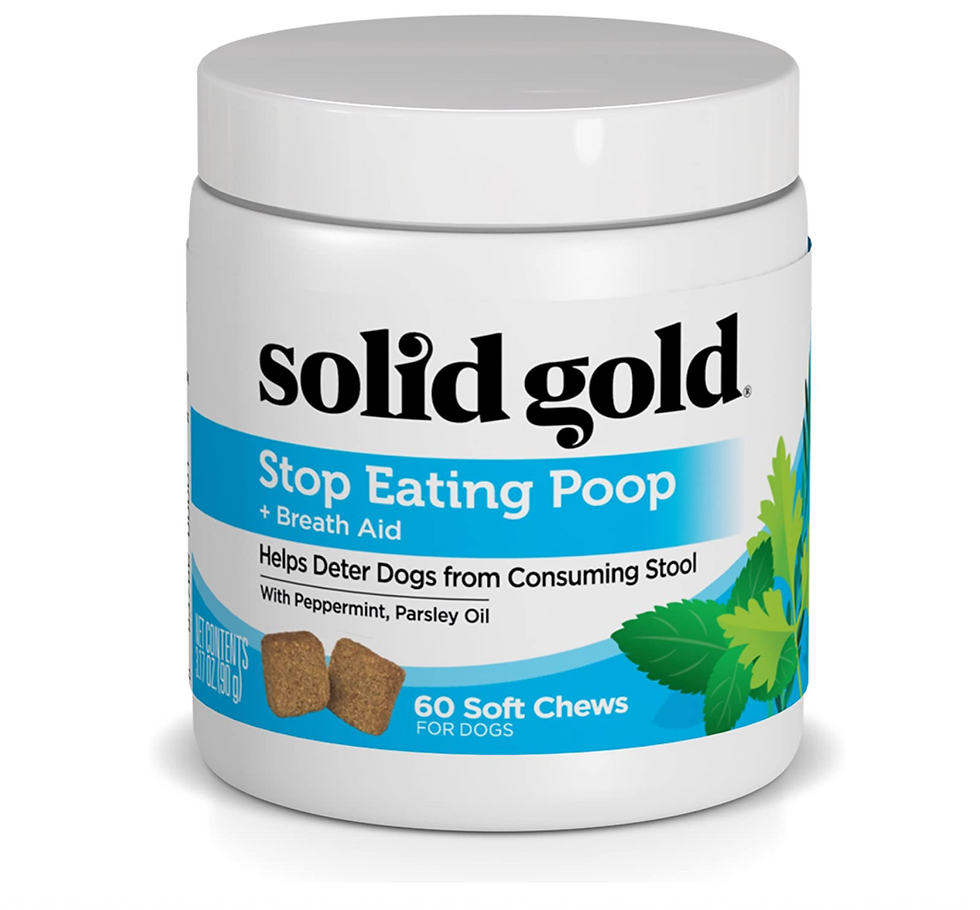My Dog Eats Poop Like It's Soft Serve
- The Baroo

- Mar 7, 2021
- 3 min read
Updated: Apr 12

It's true. Well, not my dog, but one of the dogs that I care for. He doesn't seem to mind it but let's be real, it's suuuuper gross, especially when he proudly runs up to you for snuggles right after. I have had a few dogs over the years that like to eat poop (though none as much as this particular doodle) and we have tried all manner of things to dissuade them from doing so—like putting tabasco on the poop, pumpkin in their food to change the smell, or special pills; all are suppose to make the poop smell undesirable, so they won't want to eat it. I am not sure any of it really worked, at least not with my clients. Some of them had this behavior as puppies and just grew out of it but this one particular doodle still does it on occasion and he's almost four. So why do some dogs eat poop when other don't? Is there anything you can do keep them from doing it?
According to the AKC, "Eating their own poop is harmless, but consuming that of other animals may cause health problems if the stool is contaminated with parasites, viruses, or toxins." It turns out dogs eat poop for myriad reasons, from behavioral issues like boredom, stress, and anxiety to possible digestive imbalances. It's also possible some just find it pleasant!
The technical term for poop eating is coprophagia (kop-ruh-fey-jee-uh)and it is a perfectly natural occurrence among dogs. Mother dogs eat the feces of their puppies in the first three weeks of lactation in an attempt to keep their environment clean, and puppies often eat feces as they begin to explore the world. While most puppies outgrow it, some may carry it over into adulthood and some may also pick up the undesirable trait from another dog in the home or later in life.
According to holistic veterinarian Dr. Karen Becker, the most common reason she finds dogs eat poop is an upset in the gut microbiome. "In my experience, many dogs start eating poop because their bodies are prodding them to correct an insufficiency or imbalance in the digestive process" she says.
So, if you find your dog is eating poop on the regular, it's definitely worth discussing with an integrative veterinarian to make sure there isn't an underlying medical or gut health issue. A higher quality diet, probiotics, and enzymes may be needed to help repair any gut imbalance. Animal Biome offers an at-home testing kit and complete gut restoration program that's backed by science.
Unfortunately research shows that the tricks and products on the market to help curb coprophagia only work about two percent of the time, but there are some simple ways you can help to manage the situation.
Pick up after your dog immediately if you can. While this may seem obvious, if the poop is not in the yard or in front of them, they can't eat it!
Training your dog to come to you for a treat or praise right after they do their business can also help discourage them from eating their own poop.
Make sure your dog is getting enough stimulation with physical and mental enrichment activities like toys and games to help curb boredom and anxiety.
Teaching a "leave it" cue can help when you catch them in the act.
Avoid punishing your pup for eating poop; this has the potential to create additional anxiety and behavioral issues.
If you want to see if a supplement might work for your pets' coprophagia, Solid Gold chews are a natural. holistic grain free supplement made with peppermint and parsley.
To sum it up, we humans may think poop-eating is super gross and undesirable, but it is a perfectly natural behavior for our pups. Dogs with underlying gut health issues should be treated to repair the imbalance and with a little attentiveness you can help manage and even curb your pups behavior.


Solid Gold Chews









